1. Diagnostic Kits for The Detection of Major Begomoviruses infecting grain legumes
i. Easy PCR kit for Mungbean yellow mosaic India virus (MYMIV)
ii. Easy PCR kit for Mungbean yellow mosaic virus (MYMV)
iii. Easy PCR kit for common detection of MYMIV and MYMV
Purpose: Yellow mosaic disease is the most important production constraints of grain legumes (mungbean, black gram, cowpea, soybean) in India. The predominant begomovirus species that infect these crops are Mungbean yellow mosaic India virus (MYMIV) and Mungbean yellow mosaic virus (MYMV). Close similarity in the genome of these begomoviruses makes it difficult for developing species specific diagnostics. To overcome this a novel strategy was employed to design species specific primers against MYMIV and MYMV and also a common primer set that can detect either of the begomovirus species have been developed. Using these primers, three easy PCR based diagnostic kits have been developed.
Kit description: Each kit is sufficient for 50 reactions and provided with a manual. User needs to isolate DNA and follow the PCR as per the manual. A positive control and a negative control have also been included with each of the kit. After PCR if the test samples yielded fragment similar to the size of the positive control, then it can be ascertained that the sample is infected with a particular species of begomovirus. For a generic detection of either of the begomovirus species, the common easy PCR kit can be used.
Who will be the users?
Different diagnostic companies can get the licence for bulk production of the kits. The end users could be breeders and seed companies. Breeders and Seed companies can test their promising plant material to ascertain if the plant is free from virus. Thus it will help in developing resistant varieties with high yield.
2. Diagnostic Kits for The Detection of Major Begomoviruses infecting Tomato
i. Easy PCR kit for Tomato leaf curl New Delhi virus (ToLCNDV)
ii. Easy PCR kit for Tomato leaf curl Bangalore virus (ToLCBV)
iii. Easy PCR kit for Tomato leaf curl Palampur virus (ToLCPaV)
iv. Easy PCR kit for Tomato leaf curl Gujarat virus (ToLCGV)
v. Easy PCR kit for Tomato leaf curl Joydevpur virus (ToLCJoV)
Purpose: Leaf curl disease of tomato is the most important production constraints in India. There are many begomovirus species which cause leaf curl disease in tomato, among which five are most important. These are tomato leaf curl New Delhi virus (ToLCNDV), tomato leaf curl Bangalore virus (ToLCBV), tomato leaf curl Palampur virus (ToLCPaV), tomato leaf curl Gujarat virus (ToLCGV), tomato leaf curl Joydevpur virus (ToLCJoV). Mixed infection of these viruses is seen frequently under field conditions and often makes it difficult for the breeders to identify the cause of the disease. Close similarity in the genome of these begomoviruses makes it difficult for developing species specific diagnostics. To overcome this a novel strategy was employed to design species specific primers against all five begomovirus species. These primers can detect a particular begomovirus species with a particular annealing temperature. Using these primers, five easy PCR based diagnostic kits have been developed.
Kit description: Each kit is sufficient for 50 reactions and provided with a manual. User needs to isolate DNA and follow the PCR as per the manual. A positive control and a negative control have also been included with each of the kit. After PCR if the test samples yielded fragment similar to the size of the positive control, then it can be ascertained that the sample is infected with a particular species of begomovirus.
Who will be the users?
Different diagnostic companies can get the licence for bulk production of the kits. The end users could be breeders and seed companies. Breeders and Seed companies can test their promising plant material to ascertain if the plant is free from virus. Thus it will help in developing resistant varieties with high yield.
3. Diagnostic Kits for The Detection of Major Begomoviruses infecting Okra
i. Easy PCR Kit for Bhendi yellow vein mosaic virus (BYVMV)
ii. Easy PCR kit for Okra enation leaf curl virus (OELCV)
iii. Easy duplex PCR for two major okra virus: BYVMV and OELCV
iv. Easy PCR kit for okra begomoviruses
Purpose: Yellow vein mosaic disease and enation leaf curl disease of okra are most important production constraints in India. The predominant begomovirus species that infect okra crop are bhendi yellow vein mosaic virus (BYVMV) and okra enation leaf curl virus (OELCV). Mixed infection of both these viruses is seen frequently under field conditions and often makes it difficult for the breeders to identify the cause of the disease. Close similarity in the genome of these begomoviruses makes it difficult for developing species specific diagnostics. To overcome this a novel strategy was employed to design species specific primers against BYVMV and OELCV and also a duplex PCR and a common primer set that can detect both of the begomovirus species have been developed. Using these primers, four easy PCR based diagnostic kits have been developed.
Kit description: Each kit is sufficient for 50 reactions and provided with a manual. User needs to isolate DNA and follow the PCR as per the manual. A positive control and a negative control have also been included with each of the kit. After PCR if the test samples yielded fragment similar to the size of the positive control, then it can be ascertained that the sample is infected with a particular species of begomovirus. Under mixed infection condition the duplex PCR kit can reveal the presence of both the viruses. For a generic detection of either of the begomovirus species, the common easy PCR kit can be used.
Who will be the users? Different diagnostic companies can get the licence for bulk production of the kits. The end users could be breeders and seed companies. Breeders and Seed companies can test their promising plant material to ascertain if the plant is free from virus. Thus it will help in developing resistant varieties with high yield.
4. Resistance Screening Tools (Partial Tandem Repeat Based Agro-constructs) against Begomoviruses of tomato, chilli and grain legumes
Purpose: Begomoviruses are the most important production constraints of different vegetable and pulse crops in India. To achieve success in breeding for resistance against the begomoviruses if different crops, it is essentially requiring to evaluate the breeding lines/parental sources under challenged inoculation condition. As these viruses are not mechanically transmissible, so, a reliable resistance evaluation tool in the form of infectious virus construct is necessary to evaluate the resistance of the genotypes. Whitefly inoculation is another way to screen the resistance but for that it requires elaborate arrangements, space and technical expertise. Partial tandem repeat (PTR) based agro-infectious construct is a high throughput product that can be used to screen large number of genotypes with minimal technical knowledge.
Technology Description:
Partial tandem repeat (PTR) based agro-constructs are the recombinant agrobacterium binary plasmid containing the full genome of a begomovirus joined tandemly with a portion of the same viral genome including the origin of viral replication. When the PTR construct is introduced in the plant through agroinoculation, it can release the circular viral genome as episome through homologous recombination. Such circular episome is same as the complete viral genome which can replicate inside the plant and can cause infection. In a susceptible variety, agroinoculation of the PTR construct can produce severe disease symptom but in a resistant variety the symptom is either absent or mild depending upon the rate of replication of the virus, thus allows us to screen the resistant genotype. The tool can also be used for establishing and maintaining pure culture of the said virus in any susceptible cultivar of the natural or experimental hosts for characterization of the virus.
These resistance screening tools are ready for commercialization and will be sold in the form of stab culture of agrobacterium containing the Partial tandem repeat (PTR) construct or in the form of Plasmid containing the PTR Construct.
Process for agroinoculation and screening for resistance:
The PTR plasmid is used to transform the agrobacterium strain EHA105/GV3110. For stem inoculation overnight grown bacterial culture in luria agrar plate is scrapped out into a microfuge tube and a slurry of bacterial culture is prepared using B5 medium. After incubation of the culture with 100 µM acetosyringone for 2 hrs at room temperature, the culture can be inoculated in the stem where sub-lethal injuries are created through pricking using a fine needle. Agroinoculation can also be done in germinated seeds (this is used mainly for bold seeds like grain legumes). After inoculation within 10-20 days symptom will appear in control susceptible plants, but in resistant plant mild symptom or no symptom will appear.
Who will be the users?
Seed companies can test their promising plant material to ascertain if the plant is resistant against the virus. Thus it will help in developing resistant varieties with high yield.
5. PLANT VIRUS DETECTION KIT
Description
In the present innovation, recombinant fusion proteins were used as antigens to raise polyclonal antibodies for plant viruses. Polyclonal antibody (PAb) generated using the classical approach of antigen preparation, is difficult to be reproduced if the original virus culture is lost. The recombinant coat protein constructs can be stored and maintained for longer periods and can be used for antibody production whenever required.
The expression construct of different viruses (PVX, PVS, PVM, PVY, PVA, BBTV, BSMyV, ToLCNDV, CMV, BBrMV, ORSV, CyMV, GLRaV-3 and GLRaV-4) were developed at the Division of Plant Pathology and were provided to Imgenex, Bhubaneswar to raise the antiserum against the constructs.
Purified recombinant coat proteins of viruses (200 µg) were used to prepare polyclonal antiserum in New Zealand white rabbits and monoclonal antibodies in Swiss albino mice.
Antibodies with good titre against PVX, PVS, PVM, PVY, ToLCNDV, CMV, BBrMV, ORSV, CyMV, GLRaV-3, and GLRaV-4) were used for the preparation of ELISA kits.
Salient Feature :
It is an indigenous technology and the market price of the product will be about 50% of the price of the currently available diagnostic reagents and kits, which at present are largely imported.
It is economical as compared to the other available diagnostic kits available in the market. The technology will benefit entrepreneurs to produce indigenous commercial kit. Diagnostic kit will help decision making on judicial application of insecticides for the control of virus in various crops and also will help in developing resistant cultivars.
6. SOIL TEST FERTILIZER RECOMMENDATION METER (STFR)
Description:
To increase the cost of production, farm profits and soil health. IARI has developed a digital tool, named Pusa Soil Test and Fertilizer Recommendation (STFR) Meter.
This tool analyzes as many as fourteen soil parameters i.e., soil reaction (pH), lime requirement for acid soil, gypsum requirement for alkali soil, salt content (EC), Organic carbon, available nitrogen, phosphorus and available potassium, available Sulphur, available boron, available zinc, copper, iron and manganese.
It is a programmable colorimeter and analyses soil parameters quantitatively, thus its accuracy is better than other soil test kits which analyze qualitatively based on visual comparison of colours. Additionally, it gives crop- specific fertilizer recommendation for about 100 crops including field crops, horticultural crops and spices.
It is highly useful for the areas where soil testing facility is not available. With two days’ training Pusa STFR Meter can be used for soil testing by the farmers themselves. It can be used by village panchayat, Agri –input dealers and several self-help groups working in village for soil testing purpose.It can be used by educated unemployed youths for taking up soil testing as an Agri-enterprise. It is portable and can be operated both by battery and as well as by electricity. It can be connected to PC through computer-interface and results can be communicated to the farmers through instant SMS on a pre-registered cell phone. It can be connected with laptop/computer to generate soil health card.
Salient Feature: It is highly useful particularly for the areas where soil testing facility is not available. The present innovative technology would serve as robust complement to the existing STL network.
It is a low cost, user friendly, digital embedded system and programmable instrument. Pusa STFR Meter consists of a meter, a mini shaker, a reagent-kit (for 50 samples) and other important accessories needed for soil testing.
6. PCR-BASED DETECTION KIT FOR POMEGRANATE BACTERIAL BLIGHT
Description
The PCR detection kit is specific to Xanthomonas axonopodispv. punicae causing bacterial blight of pomegranate. The kit will amplify a 491 bp region from gyrB gene of the bacterial blight pathogen.
Bacterial blight, caused by Xanthomonas axonopodispv. punicae is a major disease of pomegranate. This detection kit will help to confirm the presence of pathogen in the planting materials.
Salient Feature
The PCR based kit could detect the presence of pathogen in affected pomegranate samples within 3hr, at a detection limit 0.1 ng µl-1 templates DNA with >90% success rate.
7. ELISA -Kit for Detection of Cucumber Mosaic Virus
Description
Polyclonal antibodies (PAbs) to recombinant nucleocapsid protein (rCP) ofCucumber mosaic virus (CMV) were used in ELISA to detect both the subgroup CMV in crude extract. The conserved CP gene of CMV was cloned and an expression construct was developed in pET vector. rCP was expressed in E. coli and purified. PAbs were generated against rCP for broad spectrum detection of viruses. Enzyme-linked immunosorbent assay (ELISA) kit has been developed to detect CMV viruses.
Salient Feature
Indigenous diagnostic antibodies to plant viruses are not commercially available in India. The major limitation in the production of antibodies is in the purification of adequate quality and quantity of antigen (native virus particle) from plant tissues. We have overcome this limitation by developing nucleocapsid protein expression construct, which can be used for the production of unlimited quantity of antigen facilitating production of polyclonal antibodies, the key reagent in ELISA kit, at the commercial scale. Approximately, the antibodies can be raised by two months time. The technology will benefit entrepreneurs to produce indigenous commercial kit. Diagnostic kit will help decision making on judicial application of insecticides for the control of CMV in various crops. The diagnostic kit will help in developing resistant cultivars.
8. ELISA-Kit for Detection of Papaya ring
Description
Polyclonal antibodies (PAbs) to recombinant nucleocapsid protein (rCP) ofPapaya ring spot virus (PRSV) were used in ELISA to detect potyviruses in crude extract. The conserved CP gene of PRSV was cloned and an expression construct was developed in pET vector. rCP was expressed in E. coli and purified. PAbs were generated against rCP for broad spectrum detection of poty viruses. Enzyme-linked immunosorbent assay (ELISA) kit has been developed to detect potyviruses.
Salient Feature
The ELISA kit is sensitive to detect tospovirus infection in crude leaf extract. The sensitivity limit is about 10-25 ng of virus.The kit has been validated by testing a large number of field samples. Indigenous diagnostic antibodies to plant viruses are not commercially available in India. The major limitation in the production of antibodies is in the purification of adequate quality and quantity of antigen (native virus particle) from plant tissues. We have overcome this limitation by developing nucleocapsid protein expression construct, which can be used for the production of unlimited quantity of antigen facilitating production of polyclonal antibodies, the key reagent in ELISA kit, at the commercial scale. Approximately, the antibodies can be raised by two months time. The technology will benefit entrepreneurs to produce indigenous commercial kit. Diagnostic kit will help decision making on judicial application of insecticides for the control of PRSV and related viral diseases. The diagnostic kit will help in developing resistant cultivars.
9. ELISA-Kit for Diagnosis of Peanut Mottle Virus
Description
Polyclonal antibodies (PAbs) to recombinant nucleocapsid protein (rCP) of PeMoV were used in ELISA to detect the virus in crude extract. The conserved CP gene of PeMov was cloned and an expression construct was developed in pET vector. rCP was expressed in E. coli and purified. PAbs were generated against rCP for broad spectrum detection of viruses. Enzyme-linked immunosorbent assay (ELISA) kit has been developed to detect PeMoV virus
Salient Feature
The ELISA kit is sensitive to detect tospovirus infection in crude leaf extract.The sensitivity limit is about 10-25 ng of virus. The kit has been validated by testing a large number of field samples. Indigenous diagnostic antibodies to plant viruses are not commercially available in India. The major limitation in the production of antibodies is in the purification of adequate quality and quantity of antigen (native virus particle) from plant tissues. We have overcome this limitation by developing nucleocapsid protein expression construct, which can be used for the production of unlimited quantity of antigen facilitating production of polyclonal antibodies, the key reagent in ELISA kit, at the commercial scale. Approximately, the antibodies can be raised by two months time. The technology will benefit entrepreneurs to produce indigenous commercial kit. Diagnostic kit will help decision making on judicial application of insecticides for the control of PeMoV. The diagnostic kit will help in developing resistant cultivars.
10. ELISA-Kit for Detection of Tospo Virus
Description
Polyclonal antibodies (PAbs) to recombinant nucleocapsid protein (rCP) ofGroundnut bud necrosis virus (GBNV) were used in ELISA to detect tospoviruses in crude extract. The CP gene of GBNV was cloned and an expression construct was developed in pET vector. rCP was expressed in E. coli and purified. PAbs were generated against rCP for broad spectrum detection of viruses. Enzyme-linked immunosorbent assay (ELISA) kit has been developed to detect tospoviruses under serogroup IV.
Salient Feature
The ELISA kit is sensitive to detect tospovirus infection in crude leaf extract. The sensitivity limit is about 25 ng of virus.The kit has been validated by testing over 300 field samples of peanut, tomato, chilli and cucurbits. Indigenous diagnostic antibodies to plant viruses are not commercially available in India. The major limitation in the production of antibodies is in the purification of adequate quality and quantity of antigen (native virus particle) from plant tissues. We have overcome this limitation by developing nucleocapsid protein expression construct, which can be used for the production of unlimited quantity of antigen facilitating production of polyclonal antibodies, the key reagent in ELISA kit, at the commercial scale. Approximately, the antibodies can be raised by two months time. The technology will benefit entrepreneurs to produce indigenous commercial kit. Diagnostic kit will help decision making on judicial application of insecticides for the control of tospoviral diseases. The diagnostic kit will help in developing resistant cultivars.
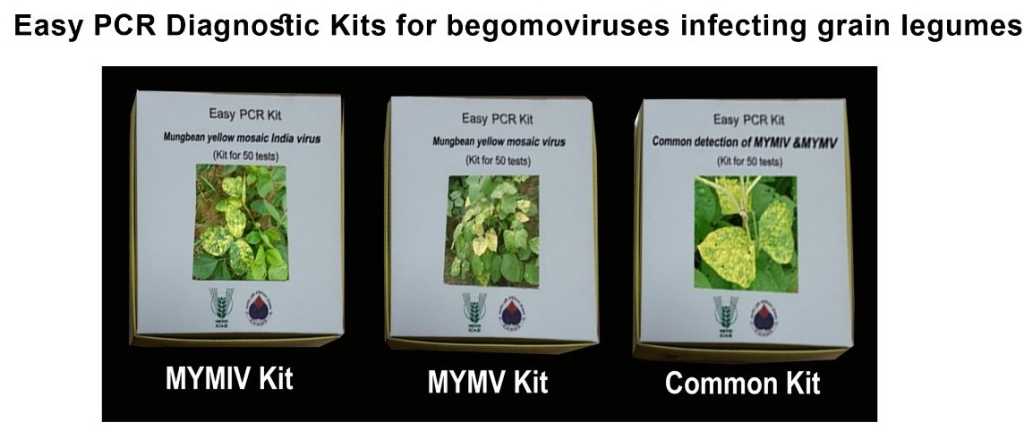
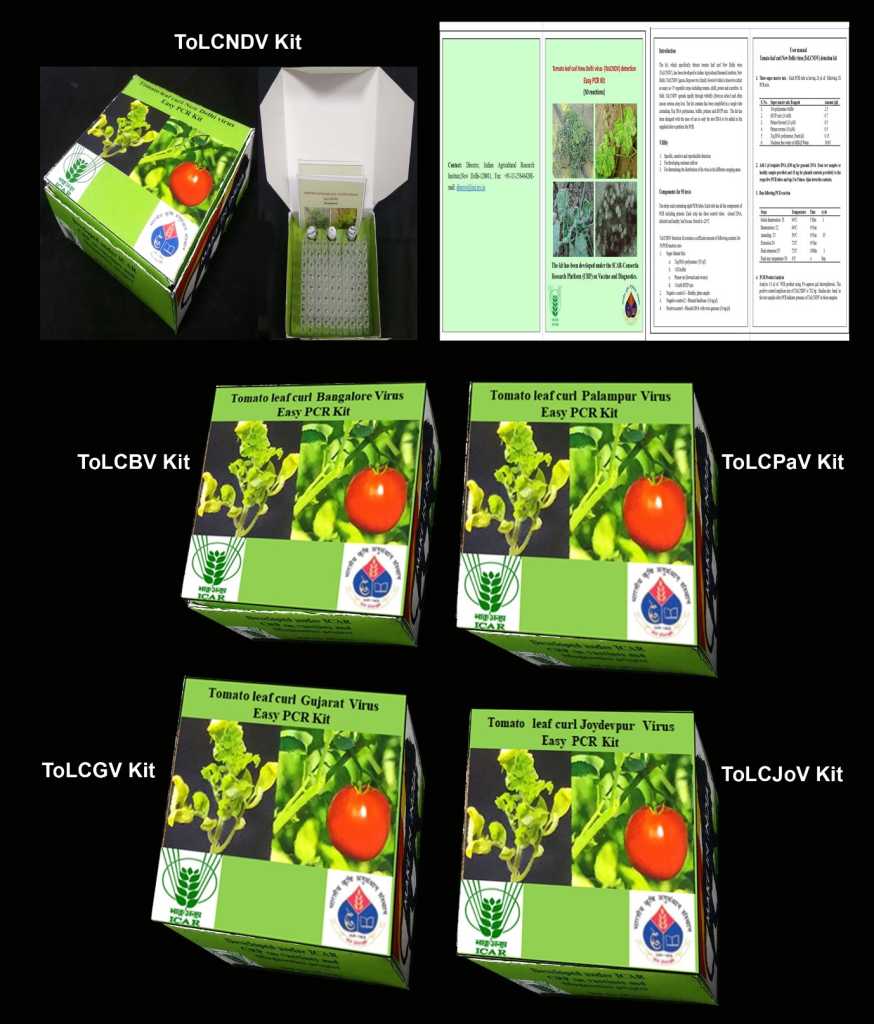
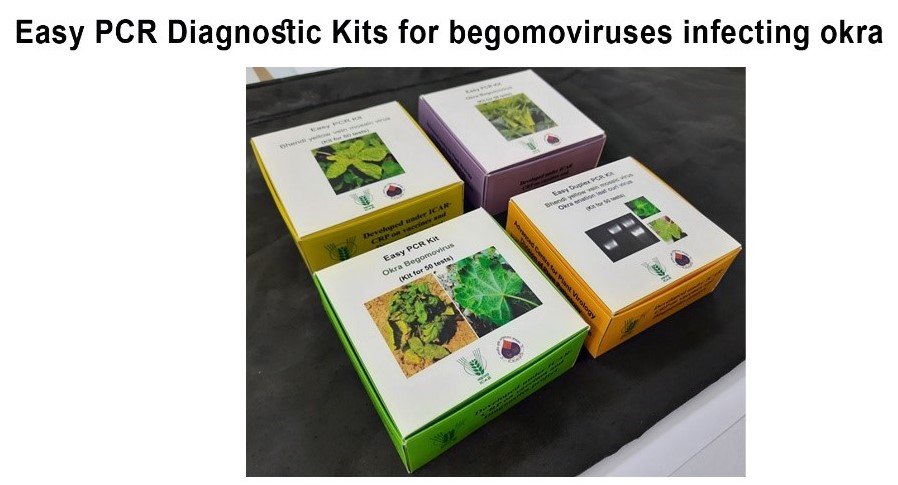
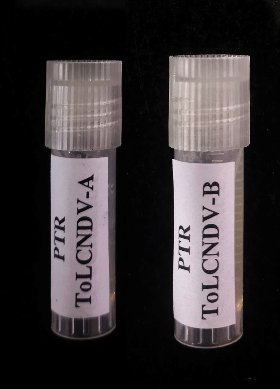
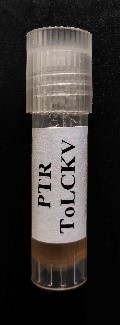
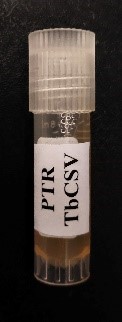
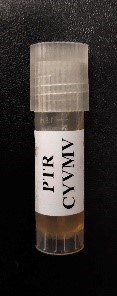
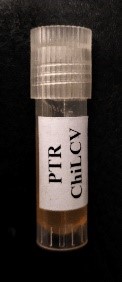
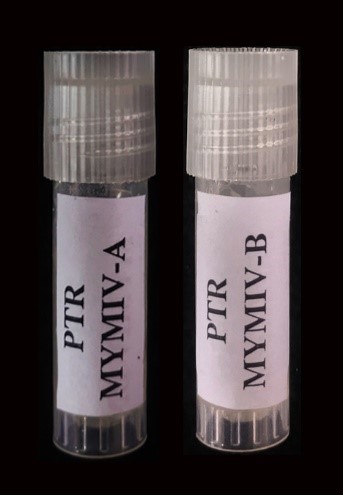
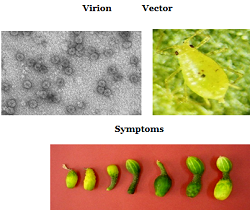
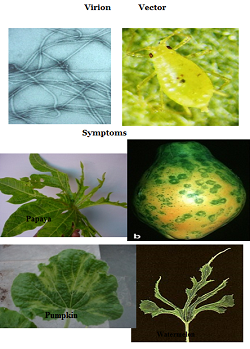
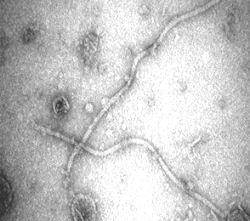
 Phone
Phone


